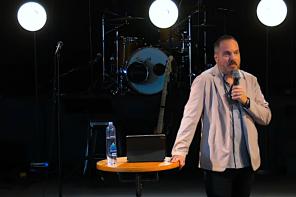This week has provided a particularly stark portrait of the divergence between the U.S., where LGBT equality continues to advance and religious conservatives have faced a series of setbacks, and many parts of the world, where increasingly harsh and violent anti-gay repression is spreading, some of it encouraged, supported, and cheered on by American religious right figures who are looking overseas for opportunities to stop “the gay agenda.”
“There is a deplorable common thread that ties together these examples of the global oppression of LGBT people: Christian complicity,” writes Paul Raushenbush at Huffington Post.
As an ordained Christian pastor, I am angered by my co-religionists’ collaboration and complicity with these laws that specifically target the LGBT community. How outrageous — how sinful — that our religious tradition should be used in the service of the demonization and denigration of our fellow human beings. It has gone on long enough. It is time for justice-minded Christians to get up off the sidelines and in the famous words of the Stonewall drag-queen Sylvia Rivera: “Not take any more of this shit.”
As if to make Raushenbush’s point, two of the most extreme anti-gay American activists, Scott Lively and Peter LaBarbera, have announced that they will launch a new organization “whose purpose is to unify and coordinate pro-family groups around the United States and the world to more effectively oppose the now global LGBT agenda.”
Uganda: Museveni at ‘war’ with ‘homosexual lobby’
President Yoweri Museveni has reportedly decided to sign the infamous anti-gay bill passed by parliament in December – legislation that makes homosexuality punishable by life in prison and punishes anyone who advocates for LGBT equality. For good measure, Museveni announced that he would go to war with the “homosexual lobby.” He also announced support for a measure to make those accused of homosexuality ineligible for bail. In addition, Museveni signed legislation forbidding women to wear miniskirts and other “indecent” dress and banning pornography.
Over the weekend, President Obama released a statement criticizing the bill. The White House said it would “be a step backward for all Ugandans and reflect poorly on Uganda’s commitment to protecting the human rights of its people. It also will mark a serious setback for all those around the world who share a commitment to freedom, justice and equal rights.” Obama National Security Advisor Susan Rice had urged Museveni not to sign the bill, which she called a “huge step backward for Uganda and the world.” Still, human rights advocates in Uganda and the U.S. said the American government should have done more to press Museveni.
Museveni had previously assured international human rights advocates that he would reject the legislation, but apparently he caved in to domestic political pressures, using as cover a “scientific” report that he had commissioned to evaluate whether or not people are born gay.
“Museveni is fighting to keep his political power,” says Political Research Associates’ senior religion and sexuality researcher, Rev. Dr. Kapya Kaoma, who has researched U.S. conservatives’ influence on African LGBTQ laws since 2008. “By signing the law, Museveni is strengthening his political base in Uganda among evangelical churches, while blaming the international community’s condemnation of the law for cuts to incoming foreign aid. Through this act, Museveni has declared war, and sanctioned the systematic persecution of sexual minorities. It is hell to live in Uganda as a gay person, and one wonders how life will be for LGBTQ persons after this bill becomes law.”
Ugandan officials have reacted defiantly to international criticism from donor nations. Minister for Ethics and Integrity Simon Lokodo said Ugandans would “rather die poor than live in an immoral nation.”
In a Religion and Politics article, Arizona State Assistant Professor of Global Christianity Jason Bruner, while not dismissing the well-documented involvement of American religious conservatives, examines a broader picture of tensions between the Anglican Church in Uganda and the Anglican Communion over sexuality issues, and the competition between the Anglican Church and growing Pentecostal churches. Bruner summarizes:
While others have focused upon the American origins of Uganda’s Anti-Homosexuality Bill, it is essential that Uganda’s unique social, religious, and political contexts not be neglected in understanding how the bill developed and how Museveni has reacted to its passage. Support for the bill within Uganda is not absolute, nor is it only motivated by the rationale given by American evangelicals and Pentecostals with ties to Ugandan leaders and pastors. There are various sources of support for this legislation stemming from anxieties over corrupting foreign influences, religious competition, and national political posturing.
While U.S. officials consider how to respond, McClatchy’s Sam Sturgis analyzes the strategic political and military relationships between the U.S. and Uganda, which he suggests will limit any U.S. response to the anti-gay law.
Note: a valuable resource on the history of Uganda’s anti-homosexuality bill is the extensive coverage by Jim Burroway at Box Turtle Bulletin.
Nigeria: Official persecution and mob violence
Human Rights activists have reported more anti-gay mob violence, exacerbated by police violence, in Nigeria in the anti-gay climate that has intensified since the signing of a law that criminalizes not only sexual activity but advocacy and even participation in social clubs.
According to a report by the New York Times’ Adam Nossiter:
Activists said the mob violence was a sign that the new law appeared to have given mobs license to act on widespread antigay sentiment in Nigeria.
“The government has given a go-ahead authority to mob jungle justice,” said Mr. Orazulike of the International Center for Advocacy on the Right to Health. “This is unacceptable. You can’t attack people violently because of whom they choose to love.”
Another activist, Dorothy Aken’Ova, accused the government of tacit complicity. “The leaders are just watching, and now the Nigerian social fabric is being disintegrated by acts of mob violence,” she said. “Now we have this new category as a result of the new law. And the government is quiet.”
The Washington Blade’s Michael Lavers reports on LGBT Nigerians who are seeking asylum in the U.S. and Canada after experience violence in their home country. The article quotes one applicant for asylum saying that hostility to homosexuality is the “only thing that can bring the Muslim and Christian community to sit at one table…two enemies that really want to kill each other can agree on this particular issue.”
We noted last month that the Nigerian law has been backed by Roman Catholic Cardinal John Onaiyekan, Archbishop of the capital city of Abuja, and by Bishop Hassan Kukah of Sokoto as well as other Christian and Muslim religious leaders. This week David Gibson of the Religion News Service reported:
In a January letter on behalf of the Catholic hierarchy of Nigeria, Archbishop Ignatius Kaigama of Jos praised Nigerian President Goodluck Jonathan for his “courageous and wise decision” in signing the legislation. Kaigama said it would protect Nigeria “against the conspiracy of the developed world to make our country and continent, the dumping ground for the promotion of all immoral practices.”
But, Gibson reports, an editorial in the Southern Cross, a newspaper run by the bishops of South Africa, Botswana and Swaziland, criticized the law, and called on the Catholic Church in Africa to “stand with the powerless” and “sound the alarm at the advance throughout Africa of draconian legislation aimed at criminalizing homosexuals.”
Discussing this division among Catholics, William Lindsey writes at Bilgrimage:
As Kevin Clarke indicates, the Southern Cross editorial also states flatly, “It would require a very peculiar reading of the Gospel to locate Jesus anywhere else but at the side of the marginalised and vulnerable.” At the Bondings blog of New Ways Ministry, Bob Shine points out that Fides, the Vatican news agency, has now published the Southern Cross editorial at its website.
The Fides excerpt includes this comparison of anti-gay persecution to attacks on Christians in Pakistan:
“Such laws are not only unjust, but they also have the potential to tear at the fabric of society if they are misused to facilitate false denunciations for gain, advancement or vengeance, much as what Christians are exposed to in Pakistan under that country’s intolerable blasphemy law.”
In a post entitled “Have Mercy,” conservative blogger Kathryn Jean Lopez, who writes at National Review Online, cites religious conservatives in the U.S. and England who have criticized the Ugandan and Nigerian laws.
Gambia: President calls gays ‘vermin’ to be fought like malaria-carrying mosquitoes
Reuters reported this week that Gambian President Yahya Jammeh “called homosexuals ‘vermin’ and said his government would tackle them in the same way it fights malaria-causing mosquitoes.” He made his remarks in a televised speech commemorating the 49th anniversary of Gambia’s independence from Great Britain. According to Reuters, last year Jammeh called gays a threat to humanity.
Britain and some other Western nations have threatened to cut aid to governments that pass anti-gay laws.
But Jammeh said his country would defend its sovereignty and Islamic beliefs, and not yield to outside pressure on lesbian, gay, bisexual and transgender (LGBT) issues.
“We will therefore not accept any friendship, aid or any other gesture that is conditional on accepting homosexuals or LGBT as they are now baptised by the powers that promote them,” he said.
“As far as I am concerned, LGBT can only stand for Leprosy, Gonorrhoea, Bacteria and Tuberculosis; all of which are detrimental to human existence,” he added.
Cameroon: Anti-gay persecution impedes public health
At the end of last week, police arrested the vice president of anti-AIDS pro-LGBT rights group Alternatives-Cameroon after he was accused of being homosexual. The man, a doctor, was unable to work on Saturday where he was supposed to oversee health screening for men who have sex with men. He was reportedly released after a few days.
The organization released a statement complaining of police harassment and lack of response to ongoing scams and blackmail against people accused of being gay. Andy Kopsa points to a recent article in the Lancet that makes the connection between discrimination and barriers to health care:
In Cameroon, he estimates that somewhere between 30% and 50% of MSM may be infected with HIV and other countries with high HIV burden have also had challenges in providing supportive health services. “It’s interesting because we were asking ourselves why health workers weren’t doing more so we interviewed some in Malawi and we found they…were worried if they’d be legally liable as aiding and abetting, so there was a real fear about providing services,” he says.
Malawi: Muslim association calls for death penalty
In Malawi, where three men sentenced under the country’s anti-gay laws are appealing to the high court, the Muslim Association of Malawi has called for gay people to be condemned to death. Pink News reports that the association’s Secretary General Salmin Omar Idrussi said:
“Malawi is regarded as a secular state but the country is blessed with God fearing citizens who can’t afford to deviate from God’s commandments for the sake of pleasing others who practice the act.
“Even animals like goats don’t do this, what more with human beings like us who were blessed with wisdom by the Almighty God? The offenders need to be handed death penalty as a way of making sure that the issue is curbed.”
Pink News reminds us that President Joyce Banda had pledged to repeal laws criminalizing homosexuality in 2012 but later said the country was “not ready” to do so.
Russia: Adoption ban implemented, arrests continue, Putin honors anti-gay ally
With the Olympics in full swing, Russian Prime Minister Dmitry Medvedev issued a decree to implement a law passed last year banning adoptions of Russian children by same-sex couples and unmarried people in countries with marriage equality.
Among protestors arrested in Russia this week were Vladimir Luxiria, Europe’s first openly transgender parliamentarian and a former Italian MP, and members of Pussy Riot, who were repeatedly detained and, in one case, attacked by Cossacks as they prepared to perform an anti-Putin protest song.
And, in a sort of middle finger to the human rights community, Putin signed a decree this week naming Dmitry Kiselyov a recipient of the “Order of Service to the Fatherland” for his contributions to Russia’s social and economic development, and “his services in the humanitarian sphere, strengthening the rule of law, protection of the rights and interests of citizens, and many years of diligent work.” Putin put Kiselyov in charge of a new government news agency created in December to tighten his control of the media. Kiselyov said last year that if gay people die in an accident, their hearts should be burned or buried so that they could not be transplanted.
The Human Rights campaign released an animated video about the role American evangelical activists have played in promoting anti-gay policies in Russia.
Dominican Republic: Religious resistance to gay ambassador
We reported last week on the response of some religious leaders in the Dominican Republic to the appointment of openly gay U.S. ambassador James “Wally” Brewster and his decision to meet with local LGBT activists along with his husband.
Andrés Duque at Blabbeando reports on continued fallout. Victor Grimaldi, the Dominican Republic’s Ambassador to the Vatican, criticized Brewster and his marriage in an open letter to the pope. Grimaldi’s letter also defends Cardinal Nicolás de Jesús López Ródriguez, who had referred to Brewster as a maricón (roughly equivalent to faggot) but more recently urged churchgoers to respect the ambassador.
Blabbeando also reports that Grimaldi sent a letter to the press complaining that Vice Minister for Foreign Affairs José Manuel Trullols had rebuked Grimaldi for his letter to the pope. Grimaldi responded defiantly:
Excellent Minister: You have never called me on the phone before. And you threatened me for a letter I addressed to Pope Francis.
After today’s call I warn you that Christian-phobia is a type of religious persecution contrary to the liberty enshrined in our Constitution, which I swore to defend and obey.
I reject your threats, even if I am sacrificed like John the Baptist for simply because as an Ambassador [to the Vatican] I obey the Constitution and as a Christian I follow the freedom of thought.
One newspaper, El Ortodoxo, has asked Grimaldi to resign for his attack on the ambassador.
News also emerged about a diplomatic event honoring the president of the Dominican Republic that was canceled in January. Some diplomats refused to attend after the dean of the Diplomatic Corps, the envoy from the Vatican to the Dominican Republic Archbishop Jude Thaddeus Okolo, who is originally from Chad, had asked Brewster’s husband not to attend, saying it would be inappropriate given that the constitution of the Dominican Republic does not recognize marriages by same-sex couples.
United Kingdom: Church of England tells priests not to bless same-sex weddings
Bishops of the Church of England adopted new guidelines this week instructing priests not to give their blessings to same-sex weddings, which will become legal in England and Wales in March. The Advocate’s Michael O’Loughlin notes,
The guidelines, posted on the church’s website Saturday, appear to be somewhat at odds with a bishops’ report issued last year, which said priests “should be free to mark the formation of a permanent same-sex relationship in a public service,” although they would not be obligated to do so. The Saturday posting states that an “informal kind of prayer, at the request of the couple, might be appropriate,” with “the assumption that any prayer will be accompanied by pastoral discussion of the church’s teaching and their reasons for departing from it.”
India: Out LGBT people vulnerable under recriminalization
BuzzFeed’s Lester Feder reports this week on the violent consequences of the Indian Supreme Court’s decision to recriminalize homosexuality. An anti-gay police raid and beatings that happened before the decision were being investigated by activists as lawless violence by police; now the victims of the raid wait to be formally charged under the reinstated colonial law that criminalizes “sex against the order of nature.” The article makes it clear that the recriminalization of homosexuality after more than four years in which the law was suspended has created a group of people who had come out publicly and are now vulnerable to having their lives destroyed.
United Methodists: impact of shrinking U.S. share of global church
Rachel Zoll of the Associated Press reviews the state of conflict in the United Methodist Church, where more than 1,100 clergy have pledged to defy the denomination’s stance against marriage for same-sex couples, and where church courts in the U.S. are defrocking clergy who do so. Zoll notes that repeated efforts to have anti-gay language removed from the church’s Book of Discipline have failed at one General Conference after another. Making doctrinal change unlikely in the forseeable future is the global demographics of church membership: Zoll reports that at the 2016 General Conference, “the share of delegates from the U.S. will drop to about 58 percent, while the contingent from Africa will rise to 30 percent.”
Iran: Pop star challenges homophobia, angers conservatives
The Guardian’s Saeed Kamali Dehghan reports that Iranian pop star Googoosh released a pro-gay video, “becoming the first prominent Iranian with such a huge following to speak out against homophobia.” She released the video for her song Behesht (heaven) on Valentine’s Day. It “portrays a lesbian couple in a relationship banned by both society and by their families.”
According to the Guardian, conservative websites in Iran have denounced Googoosh and the video as “obscene” and “anti-revolutionary.” It notes, “Lesbian, gay, bisexual and transgender people in Iran face serious persecution both from the ruling system and broader society, especially by hardline conservatives. Some risk horrific punishments, including the death penalty and heavy jail sentences; others are bullied and forced into exile.”




